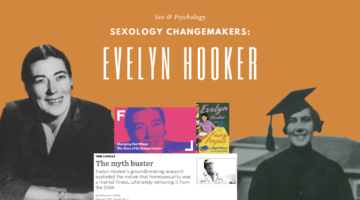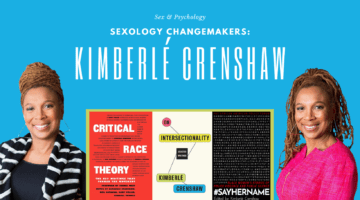Take A Moment To Thank Your Favorite College Professor Today
September 27, 2013 by Justin Lehmiller

If you all will allow me a day off from sex talk, I’d like
to share a personal story. I learned this week that one of my favorite professors from my college days, Dr. Robin Powers, passed away from cancer. She was a
pivotal figure in my life and I can honestly look back and say that I wouldn’t
be who I am and where I am today without her help. Dr. Powers was so much more
than just another one of my teachers—she was also a mentor, a friend, and a
major source of inspiration for entering the field of psychology.
I spent 10 years of my life as a college student between working
on my Bachelor’s, Master’s, and doctoral degrees. Needless to say, I’ve had my
fair share of teachers! However, there are only a few that I can distinctly
remember anymore, and those are the ones who were always striving to do more
than just teach me a set of material that I needed to know for an exam. The
professors I remember the most took a genuine interest in me as a person and instead
of simply wanting me to succeed in their course, they wanted to see me succeed
in life. Dr. Powers was one of those teachers.
She was the kind of professor who always had her door
open—there was no need to remember her office hours or to set up an
appointment. She always made herself available to her students, even though it
meant cutting into her other work and her personal time. I’ve met very few PhDs
who have anywhere near as much dedication to their students. Whenever I would
stop by to meet with her, it was rare for us to talk only about classroom
matters; we would also talk about my career plans, my love life, the science
fiction novels we were reading, our plans for the weekend, and so forth. She could seamlessly transition between the
roles of professor, advisor, and trusted friend in a given meeting and it was
this dynamic relationship that really made her stand out and allowed us to have
some incredibly meaningful conversations about who I was and what I wanted to
do with my life. Dr. Powers convinced me that I needed to pursue a career that I truly loved and she helped me to explore several different possibilities. In the end, I decided to switch my
major to psychology (I initially went to school for something else entirely).
Dr. Powers’ classroom teaching is what sparked my initial interest
in studying issues of gender and sexuality. Growing up in small town Ohio, I
must say that I was quite sheltered and didn’t know a lot about these topics, so I was very thankful to
have a professor who actually taught us about things like sexual orientation, intersex
issues, and other forms of sexual diversity. Until I took her classes, I didn’t
even know that I could make a living studying these things!
One thing I will never forget about Dr. Powers is the first day of her Psychology of Women course. It was the very first
time it had ever been taught at our university, and she relayed the story of
how she had to fight tooth and nail to get the course on the books. Mind you,
we were at a small Catholic university where several of the classes were taught
by priests and the prevailing attitude was pretty traditional and conservative.
Others at the university were pushing Dr. Powers to teach a broader course on
gender that wouldn’t emphasize one sex, but she made a passionate case for the
uniqueness of the female experience and noted just how little students learn
about it in college. For one thing, many psychology courses focus on teaching
students about “classic” experiments from the past, experiments run primarily
by male researchers on male participants. In addition, women experience a
number of biological events in their lives that men do not (e.g., menstruation,
pregnancy, childbirth), and these events can have profound psychological implications;
however, these are not discussed at all in most other courses.
I’m thankful Dr. Powers fought so hard for this course
because it really opened my eyes about gender and sexuality in ways that no
other course had done before. This class also required me to write what has
become my all-time favorite college essay. For the assignment, I had to interview three women from
different generations about their careers, relationships, and other lived
experiences. This prompted me to have an incredibly memorable
conversation with my grandmother that I wouldn’t have otherwise had in which I
learned how she had to choose between her career as a school teacher (which she
absolutely loved) or getting married and having kids. Believe it or not, in
my grandmother’s day, it was actually illegal for a female teacher to be
married. Can you imagine such a law today? My grandmother ultimately opted to have a family, but it meant sacrificing her passion for teaching.
Toward the end of my undergraduate studies, Dr. Powers
developed cancer. It was hard to see this person who had become so important to
me both personally and professionally have to go through something like this. At
one point, she didn’t think she was even going to make it to my graduation
ceremony due to her illness, so you can imagine how thrilled I was at the ceremony when I ended
up seeing her there in the front row. Dr. Powers was a feisty one, and she
fought for her life even harder than she fought to teach Psychology of Women. In
fact, I’m pleased to say that she lived to teach another whole generation of
students after her initial diagnosis and treatment (it has been just over 12
years since I graduated).
I am eternally grateful for the privilege of having Robin
Powers in my life. I hope everyone reading this is/was lucky enough to have an
educator in their life who cared so much. I also hope that you consider taking
a moment today to send a quick email, write a letter, or make a call to thank
that person and let them know what kind of impact they had on you. As an
educator myself, I can tell you that we aren’t in this profession for the
money. By far, the greatest compensation we can get for our work is the simple
knowledge that we helped our students succeed.
Thank you for everything, Dr. Powers. My success is your success.
Image Source: iStockphoto.com

Dr. Justin Lehmiller
Founder & Owner of Sex and PsychologyDr. Justin Lehmiller is a social psychologist and Research Fellow at The Kinsey Institute. He runs the Sex and Psychology blog and podcast and is author of the popular book Tell Me What You Want. Dr. Lehmiller is an award-winning educator, and a prolific researcher who has published more than 50 academic works.
Read full bio >

